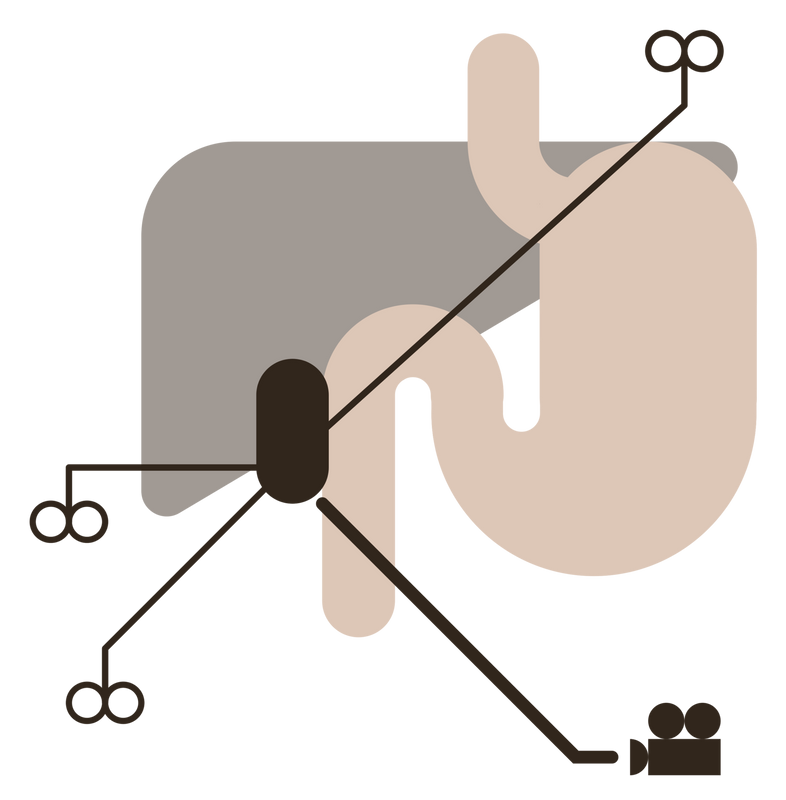The liver produces bile, which helps digest fats in foods—the gallbladder is a reservoir for about 10% of bile.
Gallstones are very common, but when they start causing problems, your gallbladder needs to be removed. Dr Balalis does this with a laparoscopic cholecystectomy (keyhole surgery). Gallstones can cause serious complications, such as cholangitis (infection of the bile duct) and pancreatitis (inflammation of the pancreas).
Laparoscopic cholecystectomy is the most common general surgery operation that Dr Balalis performs, and patients either go home the same day or following an overnight admission.
LAPAROSCOPIC CHOLECYSTECTOMY AND GALLBLADDER FAQ
What should I know about recovery?
- Most patients either go home on the same day or after an overnight admission
- Pain relief consists of regular paracetamol and tapentadol if required
- Patients can return to office type work in 1 week
- Patients should not drive for at least 10 to 14 days; when they are able to perform an emergency stop, off pain relief and their insurance is happy
What are the risks?
- Bleeding
- Infection
- Damage to the bile duct – rare, but serious risk; 1 in 300
- Bile leakage – rare, but may require further operation
- Retained gallstones – rare, but may require an ERCP (advanced endoscopy)
- If bile duct stones are found you may need an ERCP (advanced endoscopy)
Can I eat normal food after my gallbladder is removed?
Yes, you can resume a normal diet. Some patients experience diarrhoea following a fatty meal, however this is variable
Do I need my gallbladder?
You can lead a normal life without a gallbladder, and laparoscopic cholecystectomy is a very safe and commonly performed operation by Dr Balalis.
